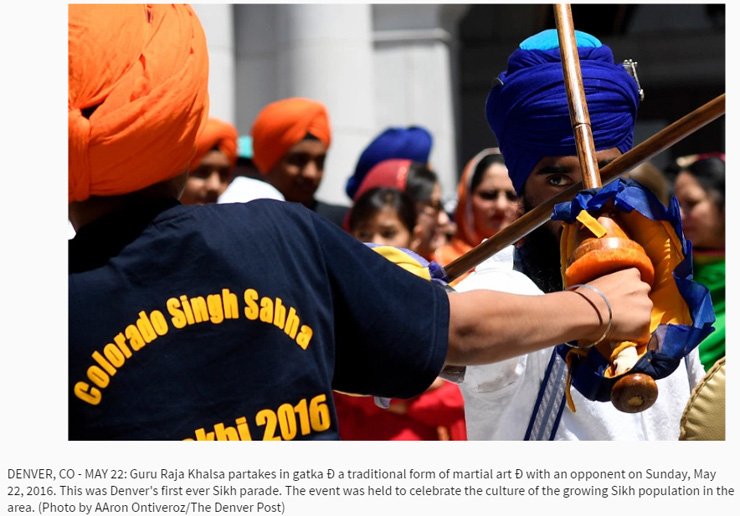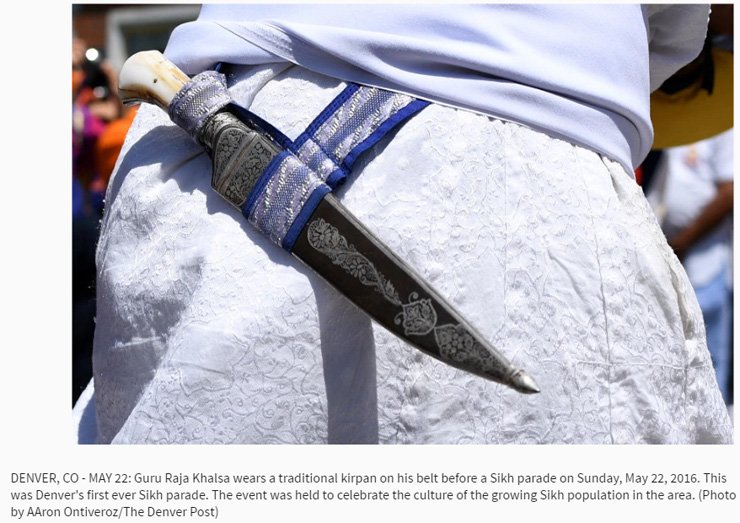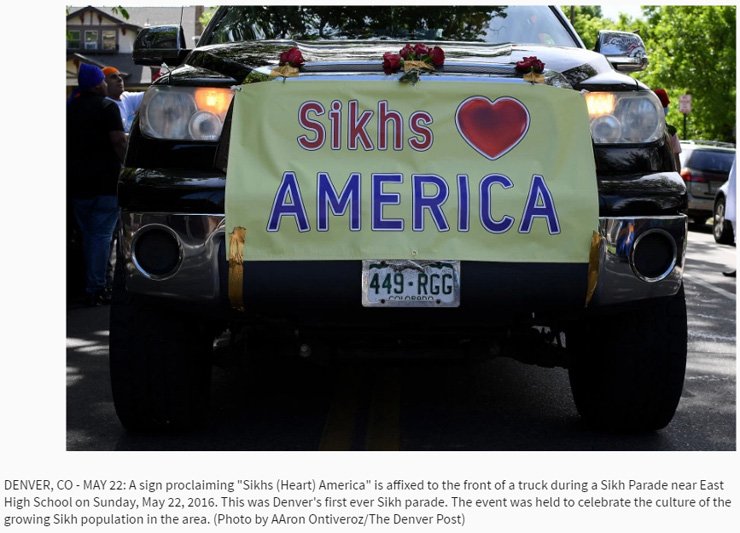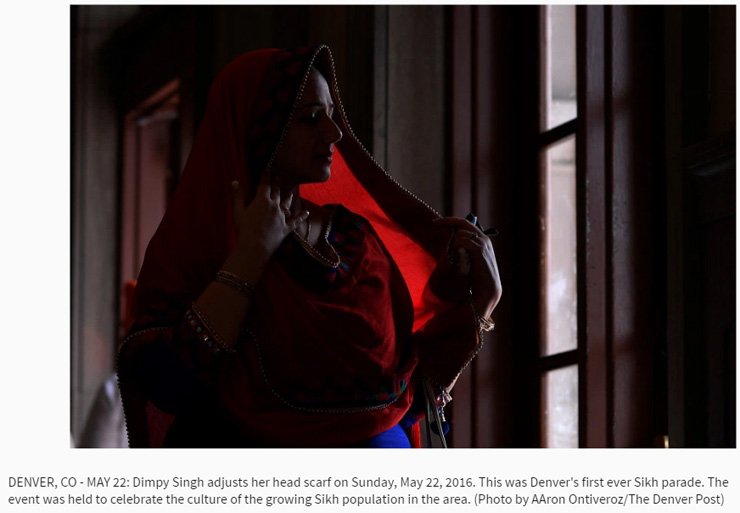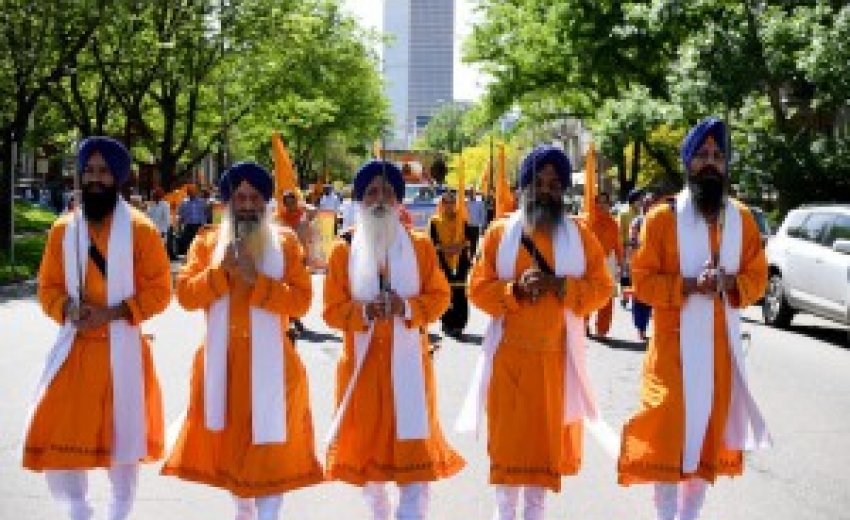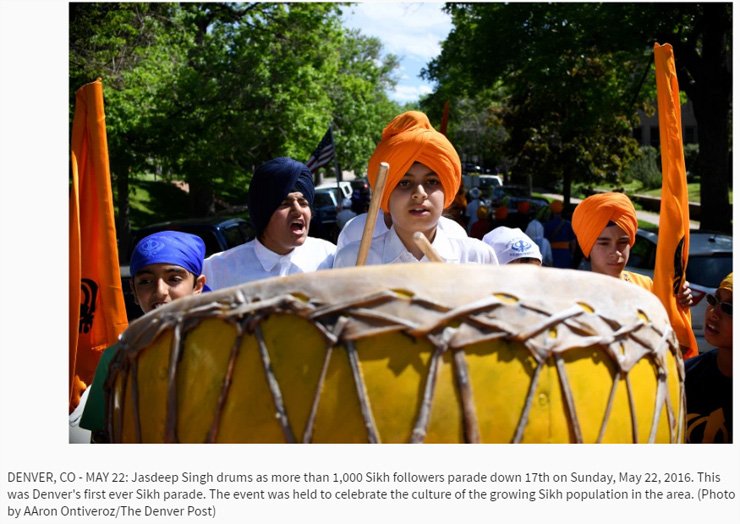
May 23, 2016: Denver got a taste of Sikh culture on Saturday at the first ever Sikh parade.
The event was geared toward bringing awareness of Sikhism to the Denver area and celebrating the customs of the growing community.
“This whole event is to make sure more people know about our community,” said Serene Singh, the youth president of the Colorado Springs Sikh Temple and the president and founder of the Sikh Student Association of Boulder.
Paul Juneja, an organizer of the parade, estimated there are about 500 Sikh families in the Denver area. More than 1,000 people attended the celebration.
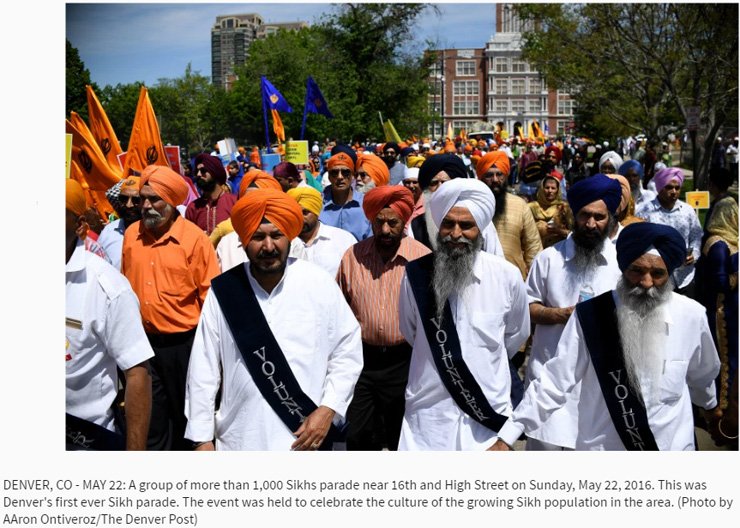
The Sikh religion is founded on principles of equality. It emerged in India at the height of a divisive caste system.
“Sikhs are about equality, regardless of race, religion, caste or sex,” Serene said.
The religion also centers on prayer, selfless service and hard work. It’s known for the men wearing colorful turbans and the fact that Sikhs don’t cut their hair.
Sunday’s festivities, which began at 9:30 a.m. and lasted until 4 p.m., also included prayer, music and traditional Sikh martial arts. Participants feasted on Indian foods such as samosas and gulab jamun throughout the day.
The parade — Nagar Kirtan — involved a processional that ran along East 16th Avenue from Esplanade Place to Emerson Street and then back down East 16th Avenue. The Sikhs carried the holy book, which is considered a living guru, through the streets to bring blessings to the Denver community.
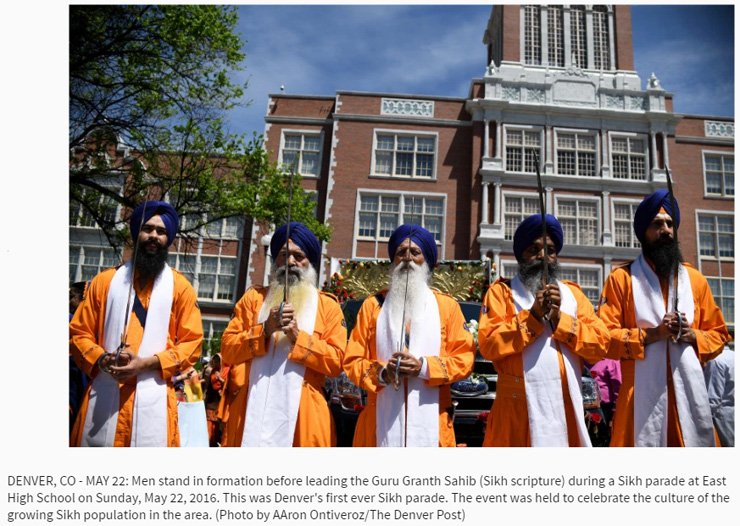
Sikhs handed out food and water to onlookers.
“This event is to celebrate the eternal guru,” said Harmann Bajwa, a Sikh community member. “The guru will constantly be relevant.”
Bajwa, 22, said the parade held special significance for her because it played a role in educating others about her faith and culture. She recalled being called a terrorist by her high school classmates after 9/11.
“I got called a terrorist and a lot of other derogatory terms,” she said. “But once they learned about what Sikhs are and what we believe, they didn’t say anything. They were so open-minded.”
Sikhs are commonly bullied in schools, said Naureen Singh, 21.
“This bullying and the inflammatory remarks are not isolated incidents,” Singh said. “We look different because the gurus wanted us to be strong and different. Turban does not equal terrorist.”
